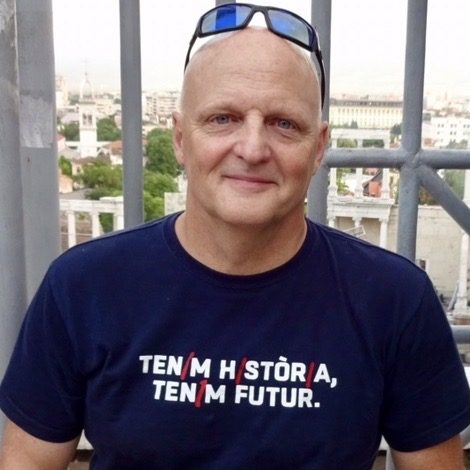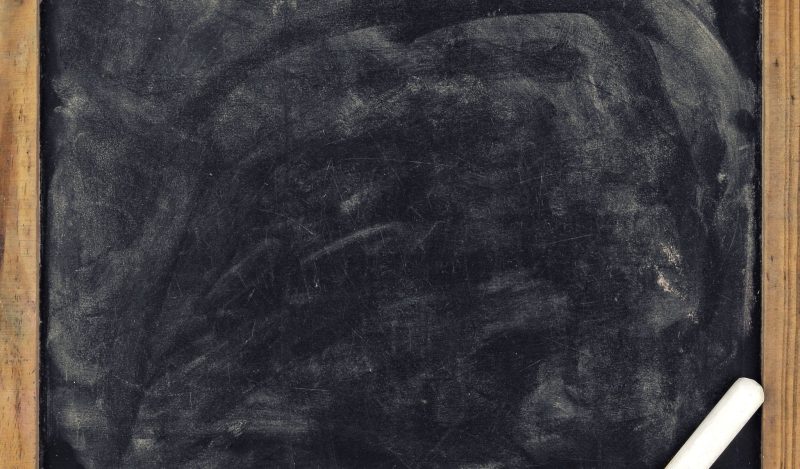When I entered the field of nationalism studies 35 years ago, it was characterized by a clear tilt toward two important ideological postures.
The first, a product of the rise of Marxist historiography in Western universities in the first three to four decades following the Second World War, was the belief that insurgent nationalist movements are, much more often than not, set in motion by mobilizations of the common people.
The second, product of the early 20th century invention of the discipline of political science—a project essentially designed to provide a rational-sounding and elite-friendly apologetics for the brute exercise of domestic and imperial power— was that the best way to understand the rise of such movements was to focus primarily on, what else?, the lives and actions of those who had spent their lives immersed in the world of elections, political parties and other “official” means of marshaling social power.
As luck would have it, however, this paradigm was in the process of being turned on its head as I got into the game, thanks in large part to the publication in 1983 of a remarkable book by the Cornell historian and specialist in east Asian cultures, Benedict Anderson. In his Imagined Communities, Anderson traces the development of the modern idea of the nation from its inception in the early 16th century up until the latter half of the 1900s.
Reading it, two things become crystal clear. The first is that the idea of creating new national collectives always manifests itself first in the minds of an often quite small lettered elite that imagines what the new entity will be like and that, in the hope of rendering it real, sets out to create and distribute its guiding myths.
The second, which flows axiomatically from the first, is that politics, understood in the way we now typically conceive of it, is almost always a distant trailing edge of these robust and quite consciously undertaken programs of new cultural production.
In the early 1990s the brilliant Israel scholar Itamar Even-Zohar seconded Anderson’s emphasis on role of elites and what he calls their acts of “culture-planning” in the creation and maintenance of nations, and indeed, all other insurgent movements of social identity.
Using his mastery of 15 languages and the access it gives him to the archives of many distinct national and/or social movements through time he sought to identify the tropes, cultural models and institutional practices that are common to the construction of virtually all such social projects, techniques whose central aim is always that of generating what he calls a state of “proneness” among the general population.
“Culture provides cohesion to both a factual or a potential collective entity. This is achieved by creating a disposition of allegiance among those who adhere to the repertoire [of cultural goods]. At the same time, this acquired cohesion generates a validated disposition of distinction, i.e., a state of separateness from other entities. What is generally meant by `cohesion’ is a state where a widely spread sense of solidarity, or togetherness, exists among a group of people, which consequently does not require acts enforced by sheer physical power. The basic, key concept to such cohesion is readiness, or proneness. Readiness (proneness) is a mental disposition which propels people to act in many ways which otherwise may be contrary to their ‘natural inclinations’. For example, going to war ready to be killed in fighting against some other group would be the ultimate case, amply repeated throughout human history.”
To accept Even-Zohar’s rich trans-historical and trans-national rendering of the way collective entities have been initiated, grown and maintained over the centuries is to begin looking at culture, and with it politics, in an entirely new way.
It does away with the admittedly appealing idea that any new concept of social reality ever emerges organically from the huddled masses. Moreover, it presumes as completely natural and unexceptional the idea of collusion between elites in the realm of creating operative social “realities”.
And in this way, it shows the common contemporary accusation that one is a “conspiracy theorist” for what it is: a desperate attempt on the of those same elites, or their paid agents, to stop pointed inquiries into the way power works when the rest of us aren’t looking. Indeed, Even-Zohar’s work suggests that few things occupy as much space in the minds of powerful elites than inventing ways to make us believe that what is good for their interests is also good for our own.
If you’ve followed me this far you might be asking yourself “What does all this have to do with the topic announced in the title of this article?”
I would say, “Quite a lot”.
The Continuation of Covid Draconiansim on Campus
Over the last several months the senseless and damaging Covid restrictions have steadily been repealed all over this country and all over the world. There is one important realm, however, where this has not broadly been the case: our colleges and universities, especially those seen as occupying the highest rungs of our educational hierarchy.
From the point of view of disease control ,the persistence of these outdated and manifestly ineffective Covid rules at colleges obviously makes no sense. In fact, it never did. College students were always among the people least likely to be affected in a negative way by the virus.
But what if disease prevention is not what it is really all about?
What if the goal is, instead, to culture-plan for a concept of the human ontology that naturalizes, not the individually-oriented sense of dignity and volition and resilience that has animated the search for meaning in the West since the dawn of modernity in the 16th century, but instead one that speaks to the logic of the feudalism that preceded it?
A feudal system presumes that the only way one can move ahead safely in the world is to establish a relationship of dependence with a powerful other who, in exchange for his protection, is granted unfettered access to the bodies (for sex, for soldiering and for labor) of his vassals and their families.
If a cultural transformation of this magnitude is, indeed the goal of our present mega-elites—and there are very good reasons to believe it just might be so—then the continuance of non-sensical Covid rules on campus makes perfect sense.
Never in history has the pipeline connecting the well-credentialed to the prime centers of social power been more consolidated and impermeable than now.
The results are there for all to see in our so-called quality media, and especially (but in no ways exclusively) in the present US presidential administration. The examples of young well-credentialed, if thinly educated and—paradox of paradoxes considering their rhetorical fixations with diversity and cosmopolitanism—deeply provincial young people in high places can be seen all around us.
Perhaps no one embodies this prototype more than our present National Security Advisor, Jake Sullivan, a man charged with guiding US’s relationship to the rest of the world who appears to have never stepped out of the self-reinforcing verities of the Anglo-American view of reality. Indeed, his greatest skill appears to be that of parroting commonplaces learned from his English-speaking elders back to them in a smug and certain fashion. Get a Yale degree, learn to talk the talk, and watch your fortunes rise.
And yet these callow provincials in government, and in the media that so often presents the inbred banality of their thought-processes as wisdom, are convinced they are changing the world. And in some ways, they are right.
While their policies in both the domestic and international realms lack anything that could be roundly be described as constructively unifying in intent or effect, they are very good at one thing: sniffing after power, seizing it, and distributing the fruits among those whom they see as sharing their same sense of credentialed righteousness.
At the same time, however, they seem to be aware on another level—a case of the impostor syndrome?—of the self-evidently dead-end and divisive nature of their woke social postulates, and the ridiculousness of their attempts to present themselves—as the impenitent imperialists and war-mongers they are—as morally enlightened protectors of the great family of man.
And this is where the continuation of senseless Covid policies on campus comes in.
A minimally reflexive person might ask him or herself if there might be something inherently flawed in the policies, such as they are, that they are foisting on the American people and the world, whether something other than the well-known uncomprehending idiocy of the unwashed might be driving the hostility regularly hurled in their direction.
But for a group raised on trophies for all, grade inflation and a continuous diet of “you can get it if you really want it” sermons, it is a simple question of numbers. Right now, as they see it, there are simply more benighted dummies out there than good people like themselves.
The answer?
Redouble efforts to ensure that the maximum number of credentialed eligibles in society ally with their faction.
How?
By making sure that all of them receive what Heinrich Böll memorably called the “Host of the Beast”—a sort of solidarity-fostering Eucharist of evil—in Billiards at Half-Past Nine, his masterful interrogation of the culture of Nazism.
Human beings hate to be proven wrong. And credentialed humans even more so than the rest. Consequently, they will go to mind-bending extremes to sustain that their clearly equivocal actions were, in fact, heartily justified. Moreover, misery truly does love company.
When faced with the choice of admitting to past errors and gullibility, or seeking to induce others to share in their misfortune—thus relativizing their shame at having been duped—surprisingly many people will choose the latter.
By force-vaccinating today’s college students, our credentialed would-be revolutionaries are placing those same students in the position of having to take a difficult stand in the face of overwhelming social pressure, something that, owing to the fact that many of their parents deprived them of the ability to develop independent moral reasoning through the game of trial and error, most of them are woefully unprepared to do.
If at a later date they do develop a sense of moral autonomy that leads them to question how and why they gave their bodily sovereignty control for no discernibly valid reason, the mix of anger and shame inside them is sure to be considerable.
But given their credentialed status, and the social advantages it will by then have probably reported to them, how many will be willing or able to face those troubling emotions with equanimity and courage?
My guess is fairly few.
Far more likely is that these people, like those tortured through fraternity and sports team hazing rituals, will seek to re-fashion their capitulation to the culture of ambient cruelty into a badge of honor and a sign of their worthiness to be included among the elect.
No good reason for leaving cruel Covid absurdities in place at our colleges and universities?
Think again.
When considered in terms of the goal of ensuring a future flow of cadres for a culture-planning project designed, it seems, to convince the many of the “naturalness” of their helplessness before the designs of the few, it makes perfect sense.
Published under a Creative Commons Attribution 4.0 International License
For reprints, please set the canonical link back to the original Brownstone Institute Article and Author.









